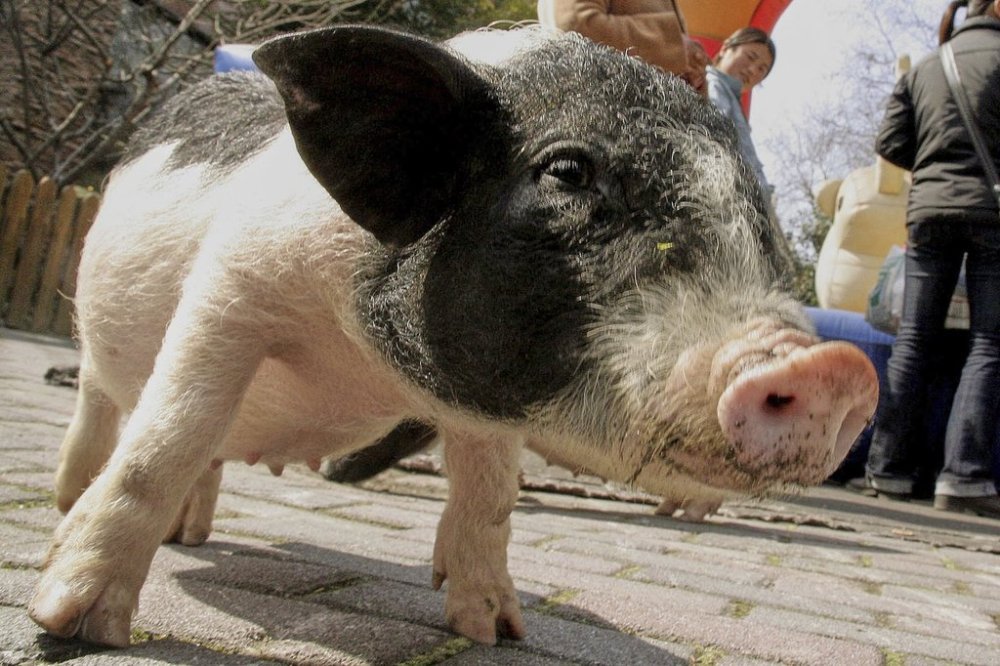Chinese researchers report a pig kidney transplant and a first-step liver experiment
Advertisement
Read this article for free:
or
Already have an account? Log in here »
To continue reading, please subscribe:
Monthly Digital Subscription
$0 for the first 4 weeks*
- Enjoy unlimited reading on winnipegfreepress.com
- Read the E-Edition, our digital replica newspaper
- Access News Break, our award-winning app
- Play interactive puzzles
*No charge for 4 weeks then price increases to the regular rate of $19.95 plus GST every four weeks. Offer available to new and qualified returning subscribers only. Cancel any time.
Monthly Digital Subscription
$4.99/week*
- Enjoy unlimited reading on winnipegfreepress.com
- Read the E-Edition, our digital replica newspaper
- Access News Break, our award-winning app
- Play interactive puzzles
*Billed as $19.95 plus GST every four weeks. Cancel any time.
To continue reading, please subscribe:
Add Free Press access to your Brandon Sun subscription for only an additional
$1 for the first 4 weeks*
*Your next subscription payment will increase by $1.00 and you will be charged $16.99 plus GST for four weeks. After four weeks, your payment will increase to $23.99 plus GST every four weeks.
Read unlimited articles for free today:
or
Already have an account? Log in here »
Hey there, time traveller!
This article was published 26/03/2025 (288 days ago), so information in it may no longer be current.
WASHINGTON (AP) — Chinese researchers are reporting new steps in the quest for animal-to-human organ transplants – with a successful pig kidney transplant and a hint Wednesday that pig livers might eventually be useful, too.
A Chinese patient is the third person in world known to be living with a gene-edited pig kidney. And the same research team also reported an experiment implanting a pig liver into a brain-dead person.
Scientists are genetically altering pigs so their organs are more humanlike in hopes of alleviating a transplant shortage. Two initial xenotransplants in the U.S. — two pig hearts and two pig kidneys – were short-lived. But two additional pig kidney recipients so far are thriving – an Alabama woman transplanted in November and a New Hampshire man transplanted in January. A U.S. clinical trial is about to begin.

Nearly three weeks after the kidney surgery the Chinese patient “is very well” and the pig kidney likewise is functioning very well, Dr. Lin Wang of Xijing Hospital of the Fourth Military Medical University in Xi’an told reporters in a briefing this week.
Wang, part of the hospital’s xenotransplant team, said the kidney recipient remains in the hospital for testing. Chinese media have reported she is a 69-year-old woman diagnosed with kidney failure eight years ago.
But Wang pointed to a potential next step in xenotransplantation — learning to transplant pig livers. His team reported Wednesday in the journal Nature that a pig liver transplanted into a brain-dead person survived for 10 days, with no early signs of rejection. He said the pig liver produced bile and albumin — important for basic organ function — although not as much as human livers do.
The liver is a complex challenge because of its varied jobs, including removing waste, breaking down nutrients and medicines, fighting infection, storing iron and regulating blood clotting.
“We do find that it could function a little bit in a human being,” Wang said. He speculated that would be enough to help support a failing human liver.
In the U.S. last year, surgeons at the University of Pennsylvania attempted that sort of “bridge” support by externally attaching a pig liver to a brain-dead human body to filter blood, much like dialysis for failing kidneys. U.S. pig developer eGenesis is studying that approach.
In China, Wang’s team didn’t remove the deceased person’s own liver, instead implanting the pig liver near it.
That “clouds the picture,” said Dr. Parsia Vagefi, a liver transplant surgeon at UT Southwestern Medical Center who wasn’t involved with the work. “It’s hopefully a first step but it’s still, a lot like any good research, more questions than answers.”
Wang said his team later replaced the human liver of another brain-dead person with a pig liver and is analyzing the outcome.
According to media reports, another Chinese hospital last year transplanted a pig liver into a living patient after a piece of his own cancerous liver was removed but it’s unclear how that experiment turned out.
___
The Associated Press Health and Science Department receives support from the Howard Hughes Medical Institute’s Science and Educational Media Group and the Robert Wood Johnson Foundation. The AP is solely responsible for all content.

